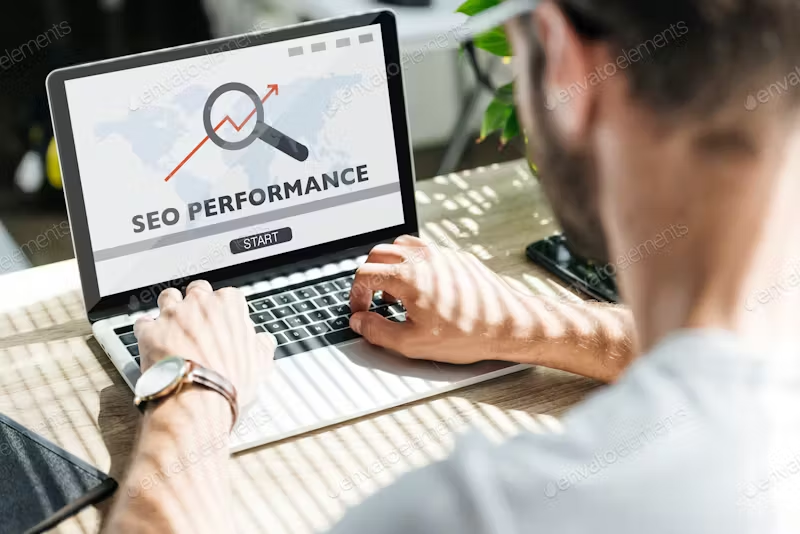Off page SEO involves activities outside your website that enhance its authority and search engine rankings, such as link building and social media engagement.
It’s crucial for improving visibility and attracting organic traffic. This article provides a comprehensive SEO off page checklist to help you boost your site’s rankings effectively.
At Flying V Group, we specialize in delivering top-notch SEO strategies tailored to your business needs. Explore our expert tips to elevate your off-page SEO game and achieve remarkable results.
Understanding Off-Page SEO
Off-page SEO refers to all activities conducted outside your website to enhance its search engine rankings. This includes strategies like link building, social media engagement, influencer outreach, and online reputation management.
Difference Between On-Page and Off-Page SEO
On-page SEO involves optimizing elements on your website, such as content, meta tags, and internal links. In contrast, off-page SEO focuses on actions taken outside your site to boost its authority and relevance.
Impact on Overall SEO Performance
Off-page SEO is crucial for establishing your website’s credibility and authority, which search engines use to determine rankings.
Effective off-page SEO strategies can lead to higher search engine visibility, increased organic traffic, and improved overall SEO performance. At Flying V Group, we specialize in comprehensive SEO strategies that integrate both on-page and off-page elements to maximize your website’s potential.
Key Elements of Off-Page SEO
1. Link Building
Importance of Backlinks
Backlinks are crucial for off-page SEO as they signal to search engines that your site is trustworthy and authoritative. High-quality backlinks from reputable sites enhance your site’s credibility and improve search rankings, driving more organic traffic.
Strategies for Acquiring High-Quality Backlinks
Effective strategies for acquiring high-quality backlinks include guest posting on reputable sites, creating valuable and shareable content, engaging in broken link building, and fostering relationships with industry influencers. At Flying V Group, we focus on building a robust backlink profile to boost our clients’ SEO performance.
2. Social Media Engagement
Role of Social Media in SEO
Social media engagement plays a significant role in off-page SEO by increasing brand visibility, driving traffic to your website, and generating backlinks. Active participation on social platforms can lead to higher search engine rankings.
Tips for Effective Social Media Marketing
To optimize social media for SEO, share high-quality content regularly, engage with your audience through comments and messages, use relevant hashtags, and collaborate with influencers. Consistent and meaningful interaction helps build a strong online presence.
3. Influencer Outreach
Benefits of Influencer Collaborations
Collaborating with influencers can significantly enhance your off-page SEO efforts. Influencers have established audiences that trust their recommendations, and their endorsements can drive traffic and generate valuable backlinks to your site.
Steps to Engage and Collaborate with Influencers
Identify relevant influencers in your industry, build genuine relationships by engaging with their content, and propose mutually beneficial collaborations. At Flying V Group, we help clients connect with key influencers to amplify their reach and SEO impact.
4. Content Marketing
Creating Shareable Content
Creating high-quality, shareable content is essential for attracting backlinks and social shares. Focus on producing informative, engaging, and visually appealing content that resonates with your audience.
Leveraging Guest Blogging and Collaborations
Guest blogging on reputable sites and collaborating with other brands can expand your reach and generate backlinks. Contribute valuable insights to industry-related blogs and participate in content swaps to enhance your off-page SEO.
5. Online Reputation Management
Importance of Reviews and Testimonials
Positive reviews and testimonials build trust and credibility, influencing potential customers and search engines. A strong online reputation can enhance your brand’s visibility and search rankings.
Techniques for Managing and Improving Online Reputation
Encourage satisfied customers to leave reviews, respond promptly to feedback, and address any negative comments professionally. Monitor your online presence regularly to ensure a positive reputation. At Flying V Group, we prioritize proactive reputation management to maintain and enhance our client’s online image.
6. Local SEO
Optimizing for Local Search
Local SEO is vital for businesses targeting a specific geographic area. Optimize your website for local search by including location-based keywords and creating localized content.
Building Local Citations and Listings
Ensure your business is listed in local directories and on Google My Business. Consistent and accurate information across all listings helps improve local search rankings and attract nearby customers. We at Flying V Group specialize in building strong local SEO profiles for our clients.
By incorporating these key elements into your SEO off page checklist, you can effectively boost your website’s authority and improve search engine rankings. Let Flying V Group guide you through implementing these strategies for optimal results.
Tools and Resources for Off-Page SEO
Overview of Essential SEO Tools
Off-page SEO requires a strategic approach and the right tools to enhance your website’s authority and search engine rankings. Key tools help in areas such as link building, social media management, and reputation management, ensuring your efforts are efficient and effective.
Using Tools for Link Building, Social Media, and Reputation Management
Link Building Tools
- Ahrefs: Ideal for discovering backlink opportunities, analyzing competitor links, and tracking your backlink profile. Use it to identify high-quality sites for guest posting and partnership opportunities.
- Moz Link Explorer: This tool helps find link building opportunities and analyze your link profile. It provides insights into domain authority and page authority, which are crucial for assessing link quality.
- SEMrush: Excellent for comprehensive link analysis and identifying toxic links that could harm your SEO efforts. It also offers link-building suggestions based on your content and industry.
Social Media Management Tools
- Hootsuite: Manages multiple social media accounts in one place, schedules posts, and tracks engagement metrics. It helps maintain consistent social media activity, which is vital for off-page SEO.
- Buffer: Similar to Hootsuite, Buffer allows scheduling and managing social media posts. It provides insights into post-performance, helping refine social media strategies.
- Sprout Social: Offers advanced analytics and social listening features. It’s beneficial for understanding audience engagement and tracking social signals that impact SEO.
Reputation Management Tools
- Google Alerts: Set up alerts for your brand name to monitor mentions across the web. It helps in promptly addressing any negative comments and capitalizing on positive mentions.
- Reputation.com: Manages online reviews and overall brand reputation. It aggregates reviews from multiple platforms and provides tools to respond effectively.
- ReviewTrackers: Tracks customer reviews across various platforms and offers analytics to understand sentiment and reputation trends.
Free and Paid Tools Recommendations
- Free Tools: Google Analytics, Google Search Console, Moz Link Explorer (basic features), and Buffer (limited posts per month).
- Paid Tools: Ahrefs, SEMrush, Hootsuite, Sprout Social, Reputation.com, and ReviewTrackers.
Measuring Off-Page SEO Success
Key Metrics to Track
- Backlinks: The number and quality of backlinks are critical indicators of your off-page SEO success. Use tools like Ahrefs and Moz to monitor your backlink profile.
- Referral Traffic: Measure the traffic coming from external sites. Google Analytics helps track referral sources and assess the effectiveness of your link-building efforts.
- Social Signals: Track social media engagement, including likes, shares, and comments. Tools like Hootsuite and Sprout Social provide detailed social media analytics.
Using Analytics Tools to Monitor Performance
Google Analytics and Google Search Console are essential for tracking off-page SEO metrics. They offer insights into referral traffic, backlink sources, and overall website performance. Regularly reviewing these metrics helps identify successful strategies and areas needing improvement.
Adjusting Strategies Based on Data Insights
Analyze the data to understand what’s working and what isn’t. If certain backlinks drive significant traffic, focus on similar link-building opportunities. If social media engagement is low, tweak your content strategy or explore new platforms. Data-driven adjustments ensure your off-page SEO efforts remain effective.
Common Challenges and Solutions
1. Overcoming Difficulties in Link Building
Link building can be challenging due to competition and quality concerns. Focus on creating high-quality, shareable content to attract natural backlinks. Guest posting and building relationships with industry influencers can also provide valuable link-building opportunities.
2. Managing Online Reputation Effectively
Online reputation management involves monitoring and responding to reviews and mentions. Use tools like Google Alerts and ReviewTrackers to stay informed. Respond promptly to negative reviews and engage with positive feedback to build a trustworthy online presence.
3. Keeping Up with SEO Trends and Algorithm Updates
SEO is constantly evolving, making it crucial to stay updated with the latest trends and algorithm changes. Follow reputable SEO blogs, attend webinars, and participate in industry forums. At Flying V Group, we continually monitor these changes to adapt our strategies and ensure our clients remain competitive.
By leveraging the right tools and strategies, Flying V Group helps clients enhance their off-page SEO, driving improved rankings and increased online visibility. Implement these insights to optimize your off-page SEO efforts and achieve sustained success.
Elevate Your Rankings with Off-Page SEO
Off-page SEO is crucial for boosting your website’s authority and search engine rankings. By implementing a comprehensive SEO off page checklist, you can improve your site’s visibility and attract more organic traffic.
At Flying V Group, we specialize in effective SEO strategies tailored to your needs. Use these tips to enhance your online presence and achieve sustained growth. Embrace the power of off-page SEO and watch your rankings soar!
FAQs
1. What is off-page SEO?
Off-page SEO refers to all activities conducted outside your website to improve its search engine rankings. These include link building, social media engagement, influencer outreach, and managing online reputation.
2. Why is link building important for off-page SEO?
Link building is crucial because high-quality backlinks from reputable sites signal to search engines that your content is valuable and trustworthy, thereby improving your search rankings and driving more organic traffic.
3. How does social media engagement contribute to off-page SEO?
Social media engagement boosts off-page SEO by increasing brand visibility and driving traffic to your website. Active social media profiles can also lead to more backlinks and higher search engine rankings.
4. What are some effective strategies for influencer outreach?
Effective strategies for influencer outreach include identifying relevant influencers in your industry, building genuine relationships, and collaborating on content that provides value to both their audience and yours. This can lead to increased exposure and valuable backlinks.
5. How can online reputation management impact off-page SEO?
Managing online reviews and maintaining a positive online reputation can enhance trust and credibility. Positive reviews and mentions can lead to increased traffic and higher rankings, as search engines favor well-regarded websites.









0 Comments